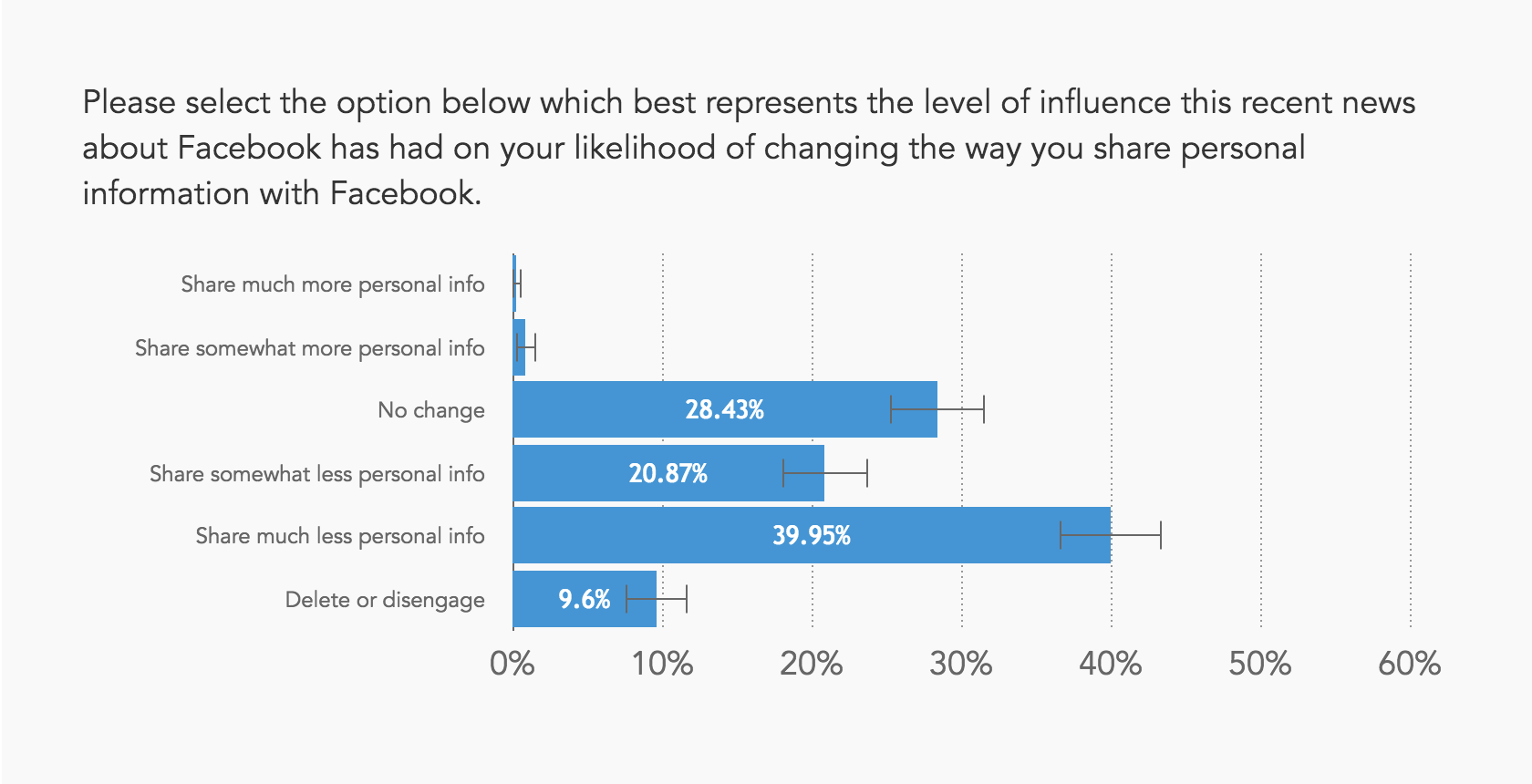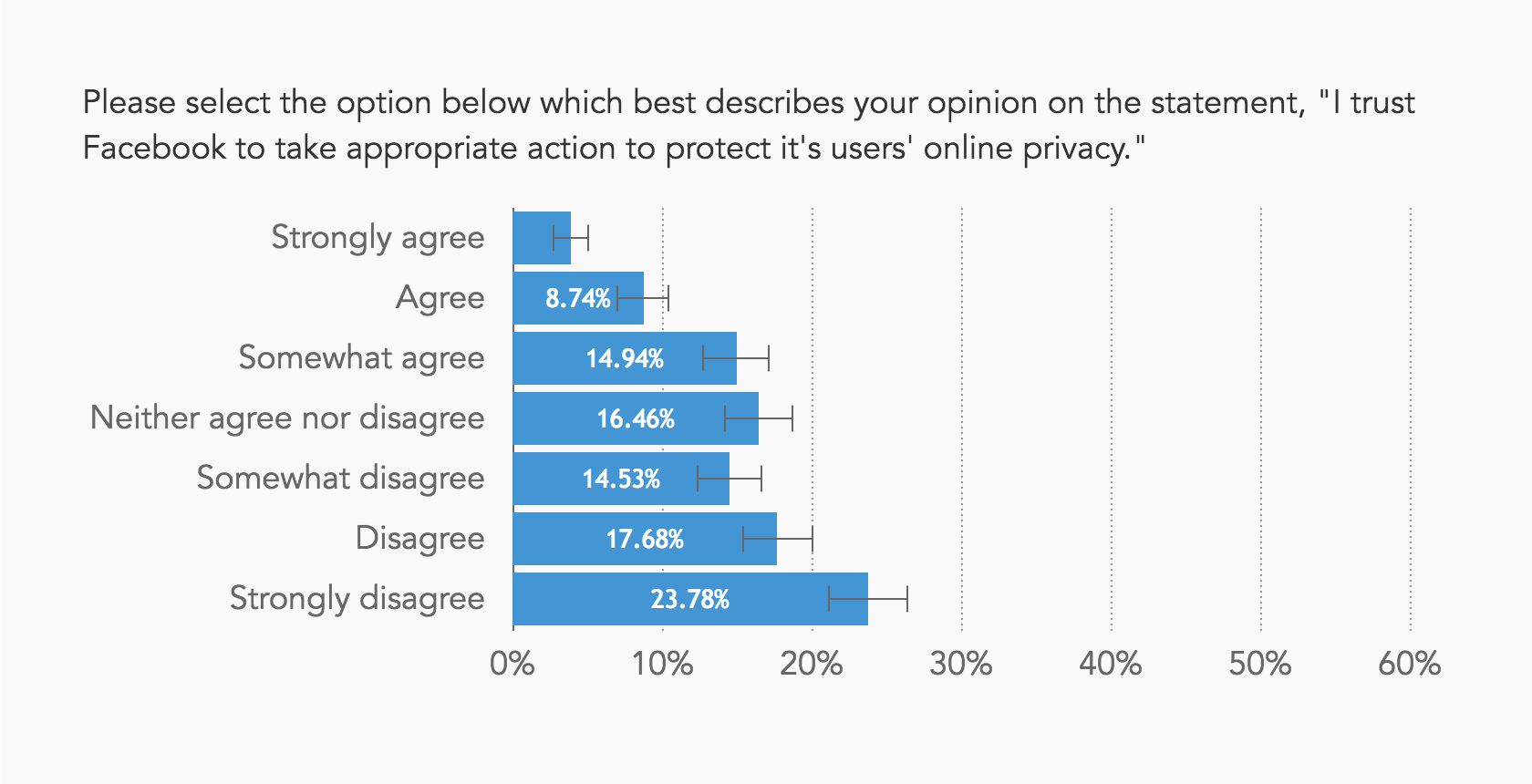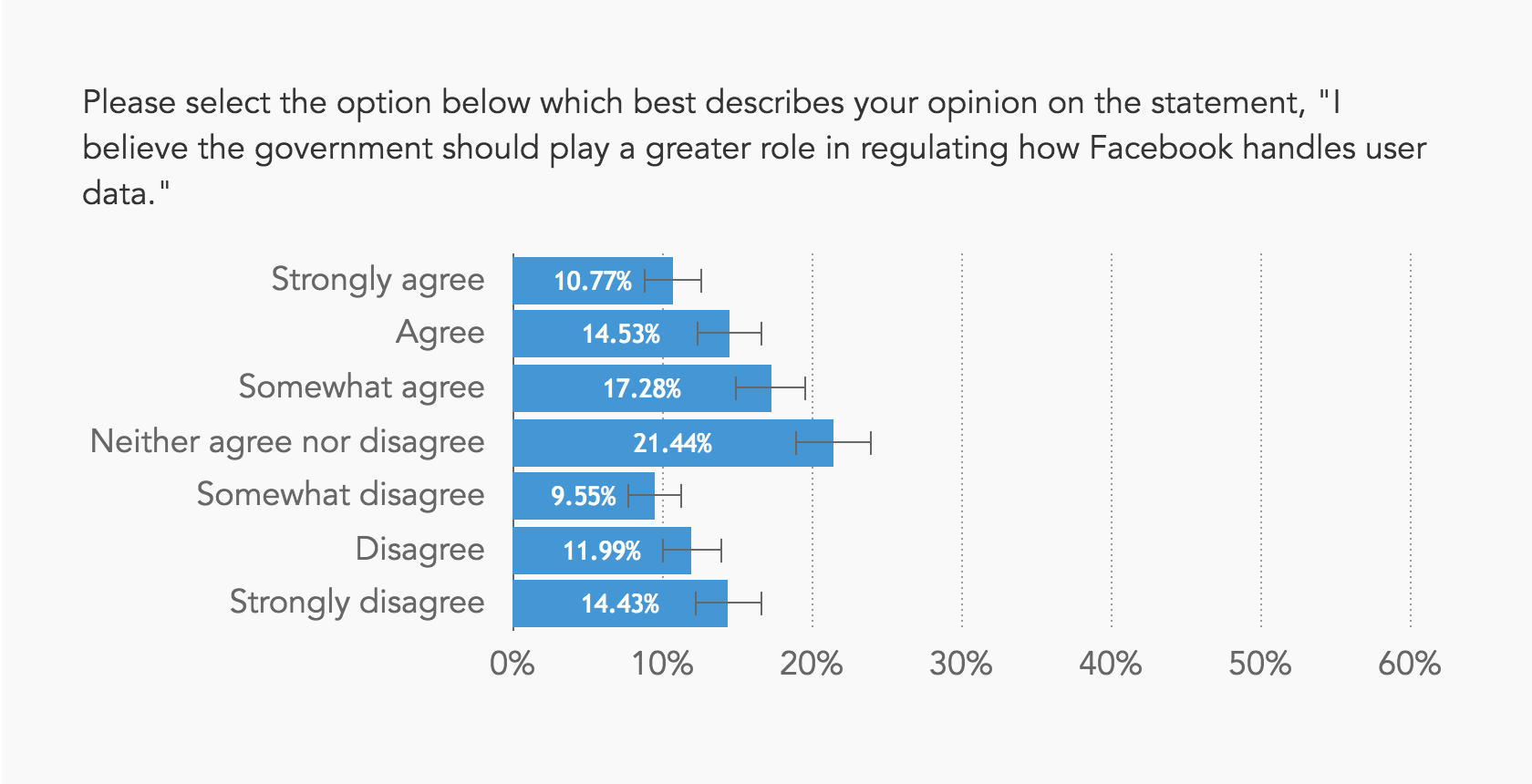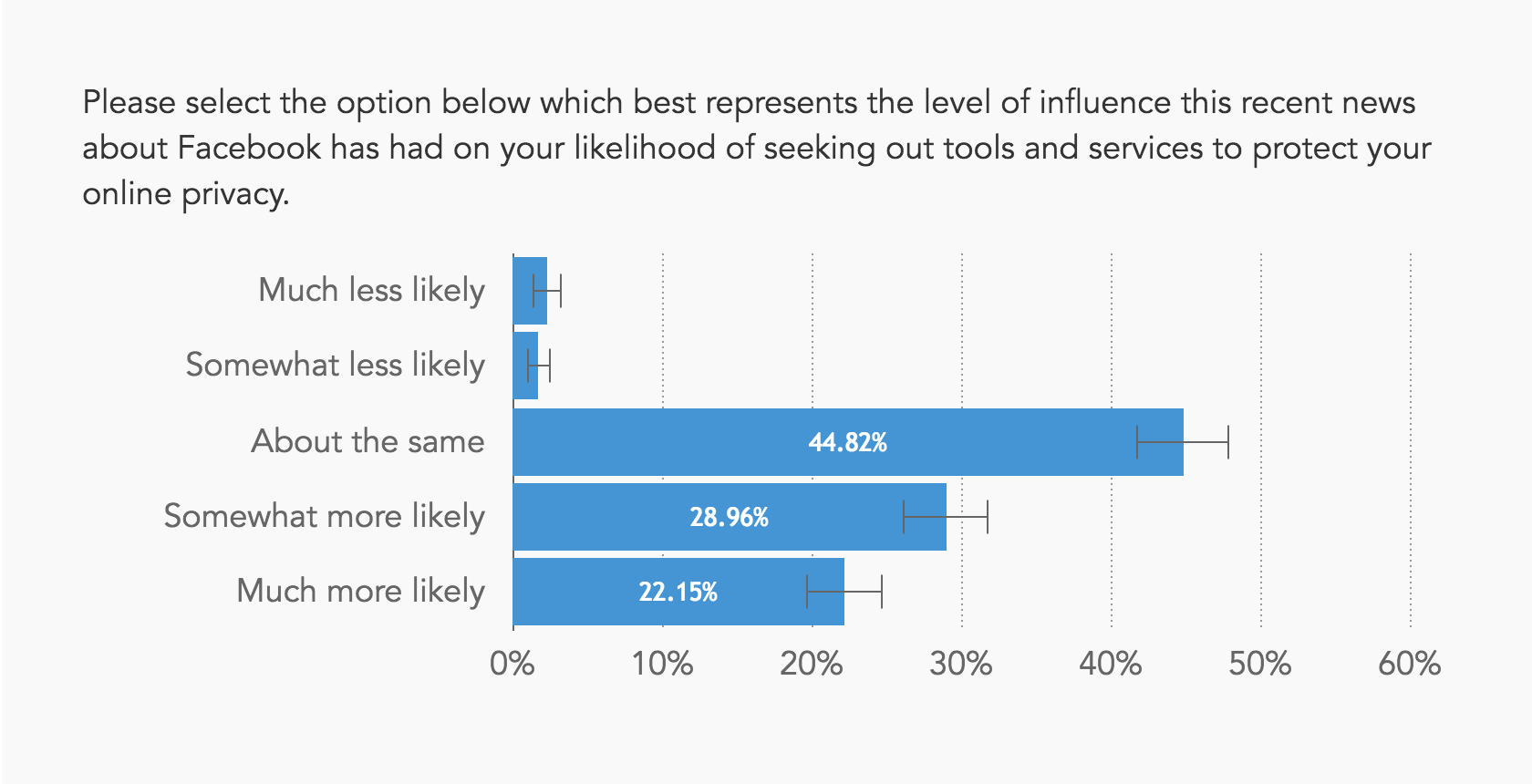What U.S. Adults Think About Facebook After Cambridge Analytica
Survey Results from 1,153 Random U.S. Adults
Over the past week and a half, there has been a lot of excellent media coverage detailing how Cambridge Analytica was able to easily download the sensitive personal information of 50 million Facebook users after only getting questionable authorization from 270,000 people.
We wanted to understand how much awareness there has been of this incident and what behaviors and attitudes may have changed among those who are aware. To that end, we commissioned a survey of 1,153 random U.S. adults (not just DuckDuckGo users), who collectively are demographically similar to the general population of U.S. adults. Surveys were taken on Mar 26th and 27th, 2018. Here are the results.
Awareness
We found that 85.34% +/- 2.04% of U.S. adults are aware of the Cambridge Analytica incident.

Deleting Facebook Accounts
Among those who are aware and who currently have a Facebook account, 37.00% +/- 3.39% state that they're now more likely to delete their Facebook account.

Sharing Less Personal Information with Facebook
Similarly, among those who are aware and who currently have a Facebook account, 60.82% +/- 3.42% plan to share less personal information with Facebook.

Trust in Facebook
More than half (56.00% +/- 3.10%) of those who are aware of the incident disagree with the statement, "I trust Facebook to take appropriate action to protect it's users' online privacy."

Regulation of Facebook
42.58% +/- 3.09% of respondents who are aware of the Cambridge data incident agree with the statement, "I believe the government should play a greater role in regulating how Facebook handles user data." Add to them the 21.44% +/- 2.56% who are neutral, and a solid majority (64.02% +/- 3.00%) are not opposed to the regulation of Facebook.

These responses differ significantly from those who haven't heard of the incident. 42.58% +/- 3.09% of those that have heard of the incident responded that they somewhat agree, agree, or strongly agree with the statement above. Compared with 30.18% +/- 6.92% of those who haven't heard about the incident, the relative change between those groups is 41.10% +/- 25.11%.
Concern for Online Privacy
Moving beyond Facebook, among those who are aware of the incident, 64.23% +/- 2.99% responded that they're now more concerned for their online privacy as a result of the event.

Seeking Tools/Services to Protect Online Privacy
Roughly half (51.12% +/- 3.12%) of those polled who are aware of the Cambridge Analytica incident are now more likely to seek out tools and services to protect their online privacy.

Even if you delete your Facebook account or stop visiting the website entirely, trackers from Facebook still lurk on about 25% of websites. Facebook can still use this tracking to create a "shadow" profile about you, and target ads at you via their audience ad network off of Facebook, or if you still use Facebook somewhat, use the browsing history they see to target ads at you on their site.
Privacy Tip: To prevent this ad targeting and additional data collection, you need to use a tracker blocker extension/app, like the one offered by us (DuckDuckGo) on all major browsers and platforms that also includes additional privacy essentials.
In Summary
In just a week and a half, the Cambridge Analytica incident has had a major impact on Americans' sentiment toward Facebook and online privacy. We expect continued shifts in attitudes and behaviors about Facebook and other services as coverage continues to scrutinze poor privacy practices, and the dialogue turns to what we can do about them.
Methodology
These results are based on the polling of a random sample of 1,153 American adults (18+) on March 26th and 27th, 2018 via SurveyMonkey's Audience platform, which ensures the demographic make-up of respondents is representative of the U.S. population. Survey respondents were paid and a confidence level of 95% was used for calculating the values above.
For more privacy advice, follow us on Twitter & get our privacy crash course.
